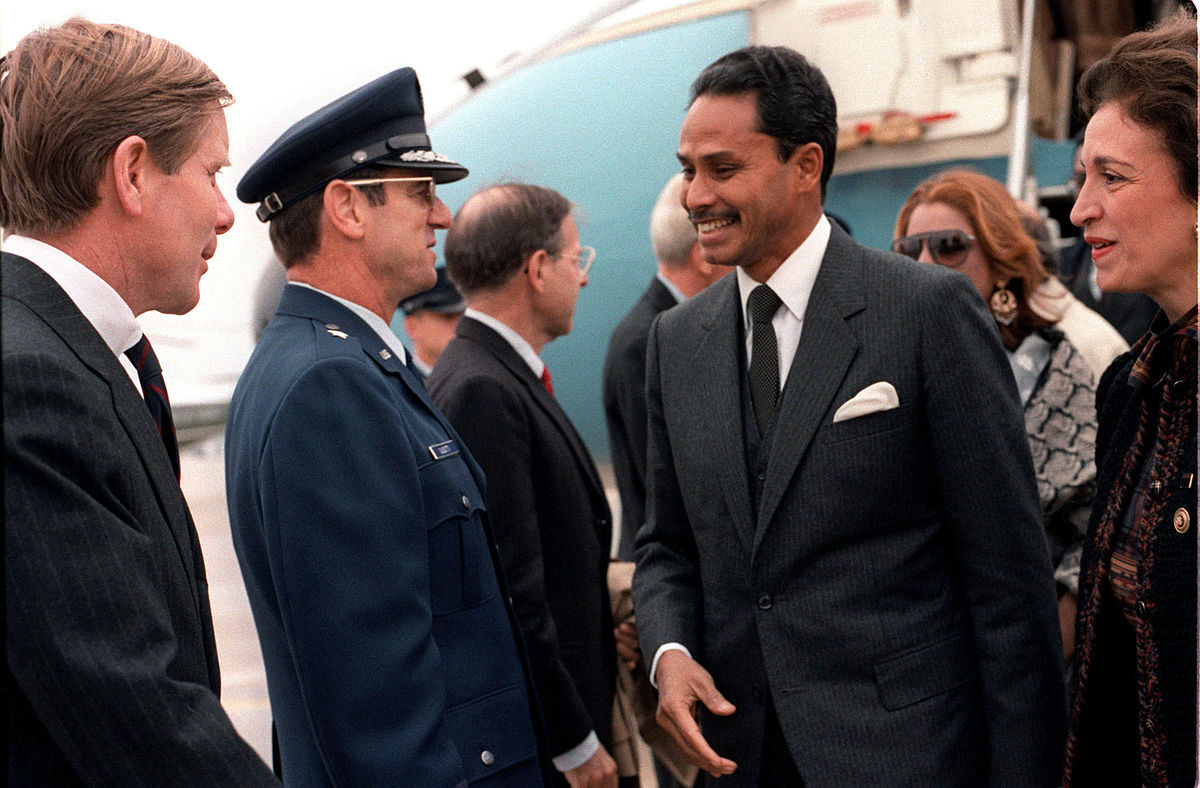
Dictatorship of Hussain Muhammad Ershad
BangladeshLieutenant General Hussain Muhammad Ershad seized power in Bangladesh on 24 March 1982, amid a "grave political, economic, and societal crisis." Discontented with the then-President Sattar's governance and his refusal to integrate the army further into politics, Ershad suspended the constitution, declared martial law, and initiated economic reforms. These reforms included privatizing the state-dominated economy and inviting foreign investment, which was seen as a positive step toward addressing Bangladesh's severe economic challenges.
Ershad assumed the presidency in 1983, maintaining his role as army chief and Chief Martial Law Administrator (CMLA). He attempted to involve opposition parties in local elections under martial law, but facing their refusal, he won a national referendum in March 1985 on his leadership with a low turnout. The establishment of the Jatiya Party marked Ershad's move towards political normalization. Despite a boycott by major opposition parties, parliamentary elections in May 1986 saw the Jatiya Party winning a modest majority, with the Awami League's participation adding some legitimacy. Ahead of the presidential elections in October, Ershad retired from military service. The elections were contested amid allegations of voting irregularities and low turnout, though Ershad won with 84% of the vote. Martial law was lifted in November 1986 following constitutional amendments to legitimize the martial law regime's actions.
However, the government's attempt in July 1987 to pass a bill for military representation in local administrative councils led to a unified opposition movement, resulting in widespread protests and the arrest of opposition activists. Ershad's response was to declare a state of emergency and dissolve Parliament, scheduling new elections for March 1988. Despite an opposition boycott, the Jatiya Party won a significant majority in these elections. In June 1988, a constitutional amendment made Islam the state religion of Bangladesh, amidst controversy and opposition. Despite initial signs of political stability, opposition to Ershad's rule intensified by the end of 1990, marked by general strikes and public rallies, leading to a deteriorating situation of law and order.
In 1990, opposition parties in Bangladesh, led by BNP's Khaleda Zia and Awami League's Sheikh Hasina, united against President Ershad. Their protests and strikes, supported by students and Islamic parties like Jamaat-e-Islami, crippled the country. Ershad resigned on December 6, 1990. Following widespread unrest, an interim government held free and fair elections on February 27, 1991.
